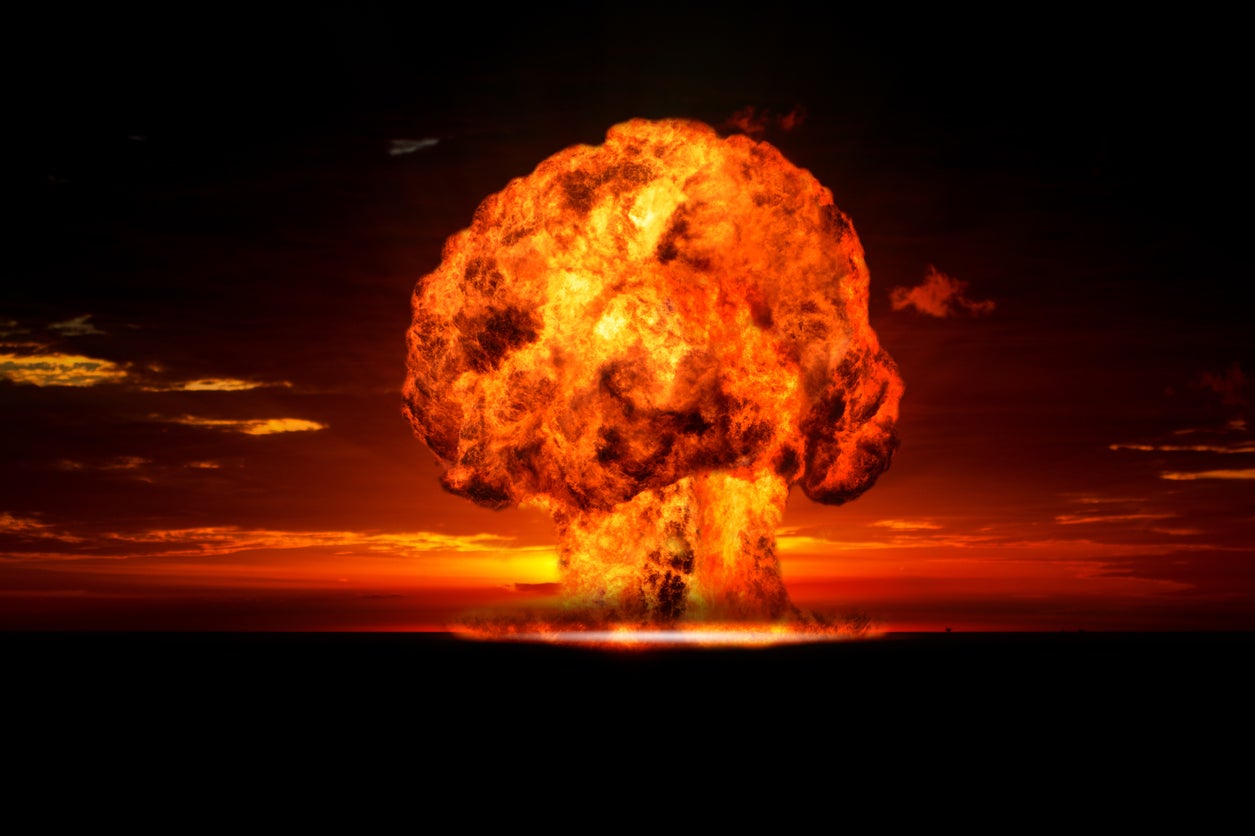Risk of 'catastrophic' nuclear accident as world relations worsen, UN warns
'The more arms produced, particularly in countries with unstable societies, the more potential exists for terrorist acquisition and use of nuclear weapons'

There will be "catastrophic" consequences when "luck runs out" on nuclear deterrence, the United Nations (UN) has warned in a major report which highlights the massive risk of an accidental or deliberate use of the world’s most deadly weapons.
The “poor relations” between nuclear powers has contributed to an atmosphere that “lends itself to the onset of crisis,” said the report by the UN Institute for Disarmament Research.
The rise in cyber warfare and hacking has left the technical vulnerabilities of nuclear weapons systems exposed to risk from states and terrorist groups, it added.
“Nuclear deterrence works—up until the time it will prove not to work,” it said. “The risk is inherent and, when luck runs out, the results will be catastrophic.

“The more arms produced, particularly in countries with unstable societies, the more potential exists for terrorist acquisition and use of nuclear weapons.”
It comes as Donald Trump of the US and Vladmir Putin of Russia have both indicated support for expanding their country’s nuclear weapon arsenals.
Deterrence is at the “greatest risk of breaking down” in North Korea and between India and Pakistan over the disputed territory of Kashmir, it said .
North Korea has continued with its nuclear weapons development programme, despite heavy sanctions being imposed against it by various countries and international bodies.
While the secretive Communist state has conducted several tests with nuclear bombs, in order to launch a nuclear attack on its neighbours, it needs to be able to make a nuclear warhead small enough to fit on to a missile.
There is no consensus on exactly where North Korea is in terms of miniaturising a nuclear device so that it can be delivered via a missile.
President Trump has said he will “deal with” the country and has not ruled out military action against it.
The report also cited a string of recent attacks and threats between India and Pakistan over the disputed territory of Kashmir. Pakistan raised the stakes in January, when it fired its first submarine-launched nuclear capable cruise missile.
In addition, the report expressed concern over tensions between the West and Russia, which have grown since the annexation of Crimea in 2014. President Putin has maintained Russia would use nuclear weapons if it felt sufficiently threatened.
Denuclearisation would require “visionary leadership”, the report said, but added this was “sadly rare” as many powerful states “increasingly turn inward”.
It added that new technology and spending on nuclear weapons had “enhanced” the risk of a detonation. However, it acknowledged the secrecy surrounding the programmes made it difficult to accurately assess their true scope.
Increased reliance technology has also introduced new problems, the report said. In the past, accidental nuclear detonations have been averted by a human decision. Replacing military officers with computers could therefore rule out a potential safety check on the weapons, and open the possibility of hacking a nuclear weapon.
The report also referenced the January 2017 decision of the Bulletin of the Atomic Scientists Science to move the publication’s Doomsday Clock two and a half minutes to midnight over nuclear fears – the most risky it had been since 1953.
The UN maintained risk was inherent to nuclear weapons and the only way to truly eliminate it was to get rid of the bombs.
Join our commenting forum
Join thought-provoking conversations, follow other Independent readers and see their replies
Comments
Bookmark popover
Removed from bookmarks